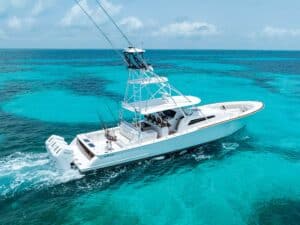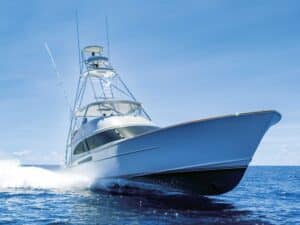
One of the most common questions maritime lawyers receive from potential clients is how to avoid sales tax on a boat. Unfortunately, every jurisdiction has different regulations, and they are always subject to change. Oftentimes, there is no reasonable way to avoid paying tax on a boat, especially if you plan to purchase and use a boat in one specific state that does have a sales tax. Nevertheless, there are circumstances in which legally avoiding sales and use taxes is a real possibility.
Sales Tax Versus Use Tax for Boats
Sales and use taxes on vessels are imposed at the state and local levels. Sales tax is imposed at the time of purchase or transfer; use tax is imposed at the same rate as a state’s sales tax, but it is imposed on boats not taxed at the time of purchase. It can be paid at the time of registration in a state other than where a boat was purchased, or it can be triggered by the use or storage of a boat for a certain amount of time in a given jurisdiction. Each state has its own rules as to how long a boat registered elsewhere can be within its jurisdiction before triggering use tax liability.
How to Avoid Sales Tax on a Boat
There are several options as to how a buyer can avoid sales tax. Of course, the simplest method is to purchase a boat in a nontaxing state, such as Delaware or Rhode Island. But let’s be honest, understanding boat taxes by state is a lot to ask for when buying a boat. Although it may be helpful knowledge if the buyer also plans to store and use the boat in that state.
In some jurisdictions, there might be an escape or removal clause in a state’s statutes. These clauses often require the buyer to submit a removal affidavit: The nonresident buyer must certify the boat will be leaving the state within a certain amount of time. A buyer can also be required to submit proof of departure (fuel or dockage receipts) and registration in another jurisdiction; they can also be prohibited from taking the boat back for a certain amount of time. The process is relatively straightforward, but it is imperative the guidelines are followed. A state’s taxing authority will have little sympathy for those who fail to follow its rules.
An offshore closing is another option for buyers who wish to avoid sales tax, especially when dealing with boats of considerable value or for owners who plan to travel constantly or register the boat in a foreign location. This type of transaction is a bit more complex and requires the parties to close offshore, outside the state’s waters. If practical, we often recommend an offshore closing over a removal affidavit because it eliminates the need for paperwork to be submitted and keeps the buyer off the state’s radar.
Additional Helpful tips
Avoiding sales tax where a boat is purchased is simply the first step in the process. Some states have an annual property tax on boats, which can be more expensive than sales and use taxes over an extended period of time. Additionally, use tax can be a complex and perpetual battle for those boats that spend time in multiple jurisdictions where it is not tax-paid. Buyers should be aware that most states require the applicable tax payment at the time of registration. Thus, a buyer can avoid tax at the time of purchase, but tax will still be owed if the boat is ultimately registered in a taxing jurisdiction.
The good news is most taxing authorities will provide a credit for sales tax paid to other states so long as the owner can provide proof of payment for the vessel in the form of a receipt or closing statement signed by a dealer or broker.
This is an elementary overview when it comes to sales and use taxes of boats, and there are many presumptions, exceptions, clauses and penalties that this article simply cannot cover. We routinely advise clients on how best to handle the taxes associated with their boat, and sometimes attempting to avoid sales and use taxes simply isn’t practical. In other situations, avoiding sales and use taxes is not only possible, it can save an owner a significant amount of money. Regardless, every boat buyer should be educated on the relevant rules and regulations.
Raleigh P. Watson is a contributing author, and a Partner at Miller Watson Maritime Attorneys.







